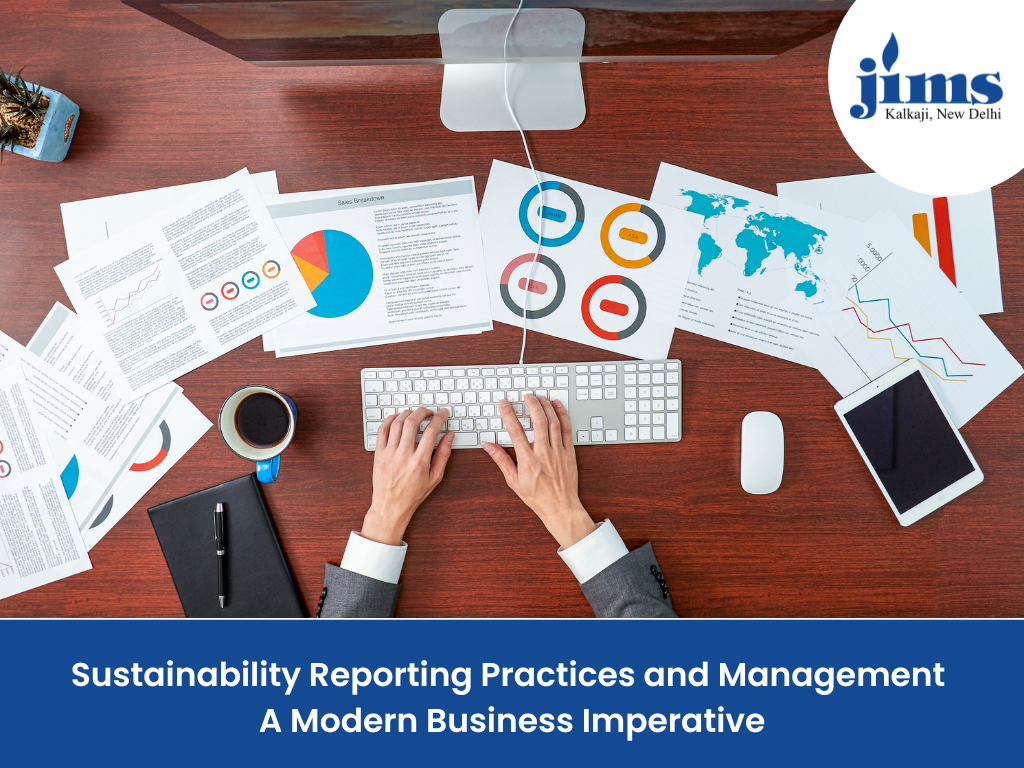
SHIRAN KHAN
In the modern corporate environment, organizations are scrutinized by the public much more than they were in the past. Financial results are still significant, but they no longer adequately reflect what constitutes a successful business. These days, an organization’s social contributions, employee care, and environmental treatment are all equally important. This shift in expectations has made sustainability reporting a crucial part of responsible and progressive management. Through sustainability reporting, companies can assess their impact, communicate their values, and demonstrate their commitment to long-term, responsible growth.
What Sustainability Reporting Means
Sustainability reporting is the process by which companies explain how they address issues pertaining to governance, the environment, and society. These reports frequently cover topics like carbon emissions, energy use, waste management, employee culture, community activities, ethical behaviour, and leadership controls. Organizations commonly rely on globally recognized frameworks such as GRI, SASB, Integrated Reporting, TCFD, and India’s BRSR to ensure that their disclosures are clear, consistent, and easy to comprehend.
Why Sustainability Reporting Is Significant for Managers
Sustainability reporting helps to build trust because it shows that an organization is willing to be transparent about its actions. When an organization is open about its social and environmental performance, stakeholders are more likely to believe in its intentions and integrity.
The process also helps management find any risks that might affect operations later on. Corporate operations may be disrupted if supply chain issues, climate change issues, or new regulations are not addressed promptly. Sustainability reporting helps managers anticipate these issues and act quickly.
Another advantage is that companies usually discover gaps and inefficiencies when preparing their sustainability reports. They might spot chances to improve worker policies, conserve energy, or make better use of available resources. These insights can help organizations operate more effectively.
Clear sustainability information also appeals to investors, who are increasingly looking for companies that act responsibly and have a plan. An organization’s dependability and preparedness for long-term challenges are demonstrated by a well-written sustainability report.
Finally, sustainability reporting has an impact on strategic choices. The findings of these reports influence resource management, environmental initiatives, employee training, and supply chain decisions.
How Organisations Prepare Their Sustainability Reports
Companies begin by identifying the sustainability issues that are most important to their stakeholders and operations. This helps people focus on the important things rather than focusing on too many things at once. They also spend time listening to people who work for their company. By interacting with employees, customers, suppliers, investors, and community members, organizations can enhance their sustainability goals and reporting.
Data that can be measured and verified forms the foundation of a strong sustainability report. Companies provide information on emissions, water use, diversity, governance, and training to help stakeholders identify areas that need improvement. To increase authenticity, many organizations ask outside experts to review the data they provide. External assurance increases trust in the accuracy of the report.
Companies that excel at sustainability reporting integrate ethical principles into their everyday operations rather than treating them as separate projects. This approach ensures that sustainability is ingrained in the organization’s culture.
Difficulties Businesses Face
For many businesses, gathering trustworthy data from multiple departments and locations can be challenging. The lack of a universal reporting standard across countries adds to the challenge. Smaller companies often struggle with limited resources and may find the process challenging. However, companies must be cautious not to overstate their achievements as this could harm their reputation. Because sustainability standards are expanding so quickly, businesses also need to stay current.
The Evolving Future of Sustainability Management
Sustainability is becoming more and more important to business planning and decision-making. In order to track their sustainability performance and identify areas for improvement, businesses will increasingly rely on digital technologies. Circular economy ideas, which reduce waste by recycling and reusing products, will have an impact on more business models. Companies’ financial plans will account for climate-related risks. Boards of directors will play a more active role in guiding sustainability, and the focus will shift to creating long-term value for all stakeholders.
Conclusion
Businesses’ conceptions of responsibility and growth are being redefined by sustainability reporting and management. Organizations strengthen their bonds with stakeholders and lay a solid foundation for the future when they strike a balance between social and environmental well-being and economic performance. Sustainability reporting enables organizations to act with purpose and communicate their commitments in a world where transparency is becoming more and more expected. It guides companies toward significant, ethical, and long-term advancement.

